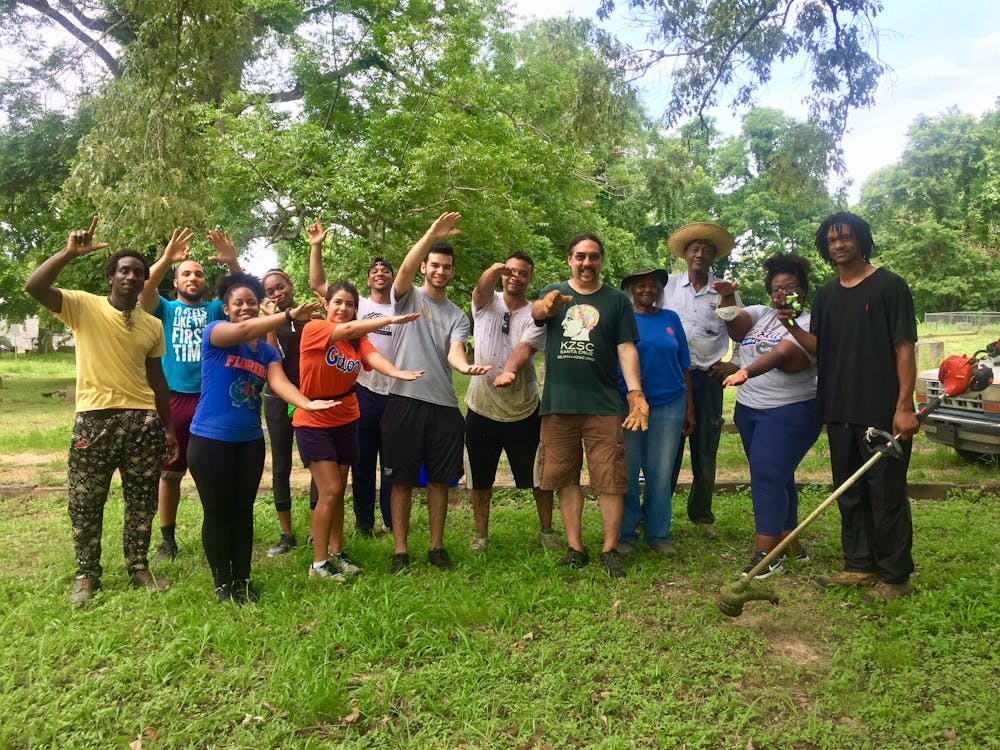In late June, 13 visibly shaken UF students ate dinner at a Southern plantation filled with Confederate memorabilia.
UF’s Mississippi Freedom Project, a part of the Samuel Proctor Oral History Program, allowed students and faculty to take an eight-day trip to the Mississippi Delta to interview participants of the civil rights movement.
The plantation was just one of the stops on the trip, which marked the 10th anniversary of the MFP, said Venetia Ponds, the trip coordinator.
“The students thought they were going to get a tour of the plantation but were shaken when they ended up eating lunch there,” she said.
Ponds said the MFP was founded to record activists’ tales from the civil rights movement in Mississippi.
She said the state was one of the most violent parts of the deep South during the ‘60s because of the high activity by the Ku Klux Klan.
One story Ponds felt stood out was about a group of hot rod racers known as the black dot gang.
She said the gang was so secretive that up until now, the only thing anyone knew about them is that they raced the fastest cars in the state.
However, MFP recently discovered that they also had a ham radio to keep tabs on KKK activity. Whenever the KKK planned to burn down a house or kill someone, members of the gang rushed over and saved the targeted people.
Paul Ortiz, the director of the oral history program, said the goal of MFP is to make sure the stories of the civil rights movement continue to exist.
“The mission is to document the history of the civil rights movement over time as well as the unfinished legacies,” he said.
UF has been coming to the delta for 10 years and have therefore gained notoriety in the community, Ortiz said.
“Now that we’ve been there for 10 years, people know that we’re there and that we have a long term commitment about telling the history of the area,” he said. “Once they find out UF will be in the Mississippi Delta, they call us because they have stories to tell.”
Students in the Mississippi Freedom Project help clean the Watkins Street Cemetery in the Mississippi Delta. The students borrowed weed whackers from locals to clear the area.
Participants in the Mississippi Freedom Project meet Fred Levin, after whom the Levin College of Law is named, and Samuel Proctor’s son, Mark Proctor, in Mississippi.






